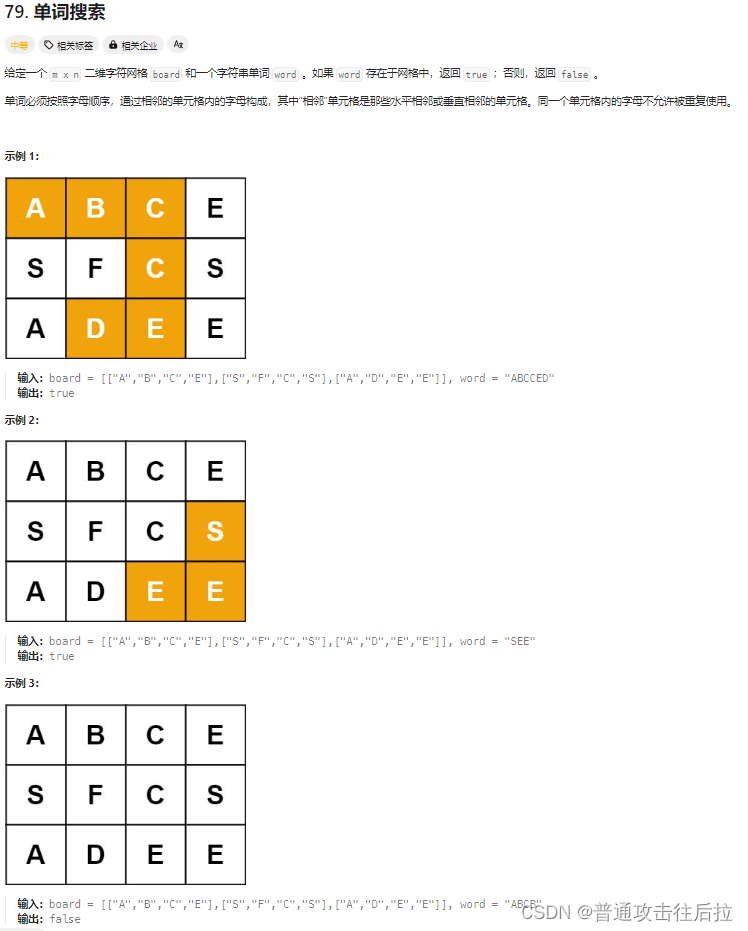Leetcode 79. 单词搜索

心路历程:
做完这道题才发现是回溯,一开始想的是递归,判断完第i个字符后,只需要挨个判断第i+1个字符在不在第i个字符的邻域。后来发现由于不能重复使用元素,所以需要维护一个visited列表,并且在遍历所有可能组合的时候还得撤回之前的选择。
回过头来从回溯的角度思考这个问题:每个边(路径)可以看作是选择哪个字母,候选集合就是当前邻域(结点)。相当于‘选哪个’的问题。
注意的点:
1、题目中要求字符不能重复选择,因此需要维护一个visited,并且需要在遍历结束后撤销选择。
2、debug时可以打印每个结点的值来看递归函数执行的正确性。
解法: 回溯
因为一开始以为是DP问题,所以为了后面用cache装饰器方便而参数化了递归函数的输入,写完后发现其实代码可以简化,可以把首字母的可选邻域看作整个board。
class Solution:
def exist(self, board: List[List[str]], word: str) -> bool:
# 递归
# 获取第一个单词的所有可能位置和其邻域
first = word[0]
pos_first = []
m = len(board)
n = len(board[0])
for i_ in range(m):
for j_ in range(n):
if board[i_][j_] == first:
pos_first.append((i_, j_))
if not pos_first:
return False
visited = []
# print(pos_first)
# @cache 回溯不能cache
def dfs(i, j, k): # 上一个字母的位置是i,j; 此时判断第k个字母在不在其i,j的邻域中
assert k > 0
if k == len(word):
return True
nonlocal m, n, board
# 先求i,j的邻域
linyu = []
if i + 1 <= m - 1:
linyu.append([i+1, j])
if i - 1 >= 0:
linyu.append([i-1, j])
if j + 1 <= n - 1:
linyu.append([i, j+1])
if j - 1 >= 0:
linyu.append([i, j-1])
flag = False
for eve in linyu:
if board[eve[0]][eve[1]] == word[k] and (eve[0], eve[1]) not in visited:
visited.append((eve[0], eve[1]))
flag = flag or dfs(eve[0], eve[1], k+1)
visited.pop()
# print(i,j,k,flag, linyu, visited)
return flag
res = False
for each_init in pos_first:
visited.append((each_init[0], each_init[1])) # 因为不能重复选择字母
res = res or dfs(each_init[0], each_init[1], 1)
visited.pop()
return res
